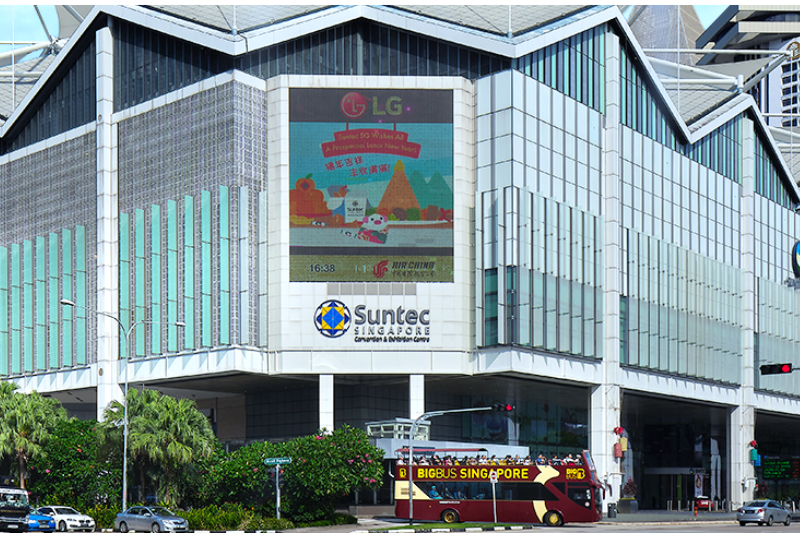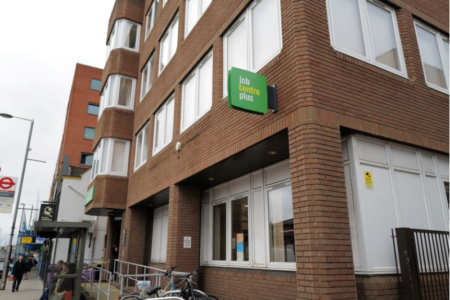The Monetary Authority of Singapore (MAS) is injecting S$5 billion into the equity market to boost liquidity and attract investors.
REITs, which form a cornerstone of Singapore’s stock market, are well-positioned to capture renewed investor attention from this push.
Four established names with strong fundamentals may particularly benefit from improved market sentiment and increased trading volumes.
Suntec REIT (SGX: T82U)
Suntec REIT owns a diversified portfolio of office and retail properties across Singapore, Australia and the UK.
As a large-cap S‑REIT, the trust has historically traded at a discount during weak market conditions.
The MAS liquidity push could draw institutional capital back into large-cap names, potentially narrowing valuation gaps.
Operating metrics in the third quarter of 2025 (3Q2025) remained strong.
Committed occupancy stood at 98.5% for Singapore offices and 99.3% for retail, while the Australia portfolio recorded 87.3% and the UK portfolio 92.5%.
Rental reversion remained robust at 8.5% for the Singapore offices, 8.6% for retail and 11.9% for Australia, on the back of resilient leasing demand and sustained rental growth across key markets.
Balance sheet metrics are healthy.
Gearing declined slightly to 41% from 41.1% the previous quarter, comfortably below the MAS regulatory limit of 50%.
The interest coverage ratio (ICR) remained stable at 2x as of 3Q2025, above the 1.5x regulatory minimum.
Distribution per unit (DPU) for 3Q2025 rose 12.5% year on year (YoY) to S$0.01778, driven by stronger Singapore portfolio performance, lower financing costs, and a withholding tax reversal.
With improved liquidity and market sentiment, a large-cap like Suntec could see valuation support and a narrower discount to NAV.
Keppel REIT (SGX: K71U)
Keppel REIT holds a portfolio of Grade A offices in Singapore, Australia, Japan and South Korea.
The trust continues to post strong rental reversions across its prime office properties, supported by resilient leasing demand in the core markets.
Enhanced market liquidity could support increased trading volumes and higher valuation multiples for established, institutional-grade REITs.
Aggregate leverage (gearing) stood at 42.2% in 3Q2025, with 65% of borrowings on fixed rates.
Committed occupancy edged up 0.4 percentage points quarter on quarter to 96.3%, while rental reversions remained strong at 12% for the nine months ended September 2025 (9M2025).
Distribution growth, however, remains muted.
Distributable income from operations came in at S$144.6 million for 9M2025, down 0.6% YoY.
Had management fees been paid entirely in units, distributable income would have grown 6.7% YoY to S$155.3 million, suggesting that fee payment structure is weighing on reported growth.
The REIT trades at price-to-NAV ratio of around 0.86x, reflecting market concerns over near-term distribution growth despite solid operational fundamentals.
With robust sponsor backing and a diversified office portfolio, Keppel REIT could attract renewed interest as market liquidity improves.
ESR-LOGOS REIT (SGX: J91U)
ESR-LOGOS REIT owns industrial and logistics properties across Singapore, Australia and Japan.
The REIT’s diverse portfolio continues to draw attention from institutional investors.
Demand for logistics and industrial assets remains supported by e-commerce growth and evolving supply chains.
Enhanced market liquidity could improve the REIT’s access to capital for refinancing and selective acquisitions.
3Q2025 operational metrics show continued portfolio strength.
Occupancy stood at 90.3%, up from 91.2% in the previous quarter, reflecting successful lease-up efforts.
About 71% of rental income comes from “new economy” logistics and high-specs industrial assets, underscoring the REIT‘s exposure to high-demand sectors.
Balance sheet metrics remained healthy.
Gearing stood at 43.3% as of 3Q2025, within the REIT’s target range of between 42% and 43%.
The average cost of debt declined to 3.40% per annum, down from 3.84% at end-2024, as lower interest rates fed through.
The trust is executing its “4R” strategy (rejuvenate, recycle, recapitalise and reinforce) through capital recycling – divesting non-core assets and reinvesting into higher-spec logistics and industrial properties.
This approach prioritises portfolio quality and balance sheet discipline over rapid expansion.
CapitaLand India Trust (SGX: CY6U)
CapitaLand India Trust (CLINT) offers Singaporean investors exposure to India’s IT and business park sectors, providing diversification into a high-growth office market.
Enhanced market liquidity could boost the trust’s visibility and trading volumes, potentially attracting greater institutional participation in this relatively less-liquid name.
Committed occupancy stood at 91% in 3Q2025, up from 89% in the previous quarter. The weighted average lease expiry (WALE) remained stable at 3.6 years, indicating consistent lease term stability.
Rental reversions remained strong at 15% for the quarter.
Balance sheet metrics showed continued improvement.
Gearing declined to 40.9% in Q3 2025 from 42.3% in Q2 2025, reflecting modest deleveraging following the divestment of two non-core assets (CyberPearl and CyberVale) in September.
The average cost of debt stood at 5.8%, with 77.2% of borrowings on fixed rates.
With portfolio growth in India’s office sector and an improving balance sheet, CLINT could attract greater interest from Singaporean investors seeking regional diversification.
What This Means for Investors
The S$5 billion equity push could lift the broader REIT sector, supporting higher participation and potentially narrowing valuation discounts.
While underlying fundamentals remain key, enhanced liquidity may provide tailwinds for well-managed, income-generating trusts trading below net asset value.
Get Smart: Positioning for Opportunity
Singapore’s liquidity push won’t transform REIT fundamentals overnight, but could improve sentiment, and ease access to capital.
REITs with strong portfolios such as Suntec, Keppel, ESR-LOGOS, and CapitaLand India Trust may benefit most from renewed investor attention and improved trading volumes.
Focus on quality REITs with healthy balance sheets and stable distributions rather than chasing yield alone.
The world’s gotten unpredictable, but some Singapore companies have quietly kept thriving. You’ve probably seen them in your daily life. And yes, they’ve kept paying dividends through it all. Meet 5 resilient stocks built to navigate global storms. Get the free report here and see how they’ve done it.
Follow us on Facebook, Instagram and Telegram for the latest investing news and analyses!
Disclosure: Darien does not own any of the shares mentioned.





